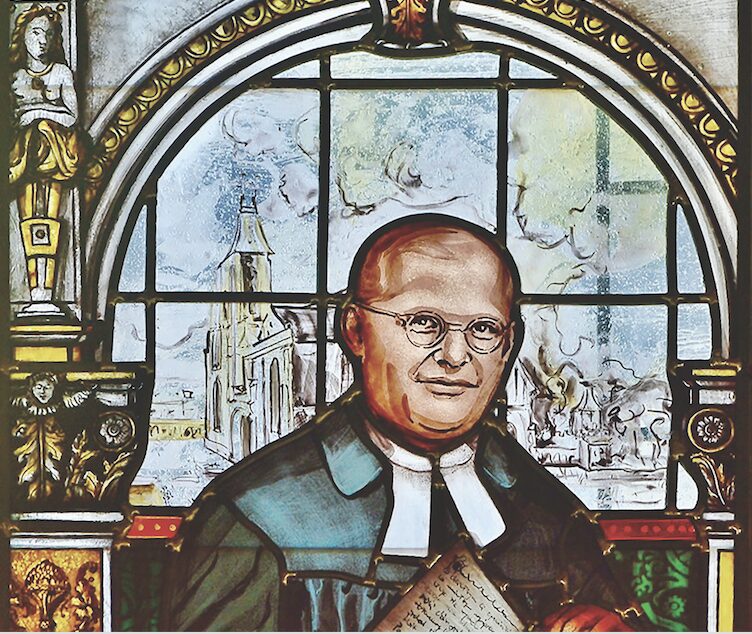Bonhoeffer Executed 80 Years Ago for Nazi Opposition
April 9, 1945
In the early years of Adolf Hitler’s rule, the Nazi regime aimed to consolidate power over all aspects of German life, including religion. In response, German theologian and Lutheran pastor, Dietrich Bonhoeffer–along with theologians Karl Barth and Martin Niemöller, led a movement resisting the Nazi government’s efforts to unite various German Protestant denominations under a single state-controlled “Reich Church” (Reichskirche) with Nazi-sympathizer, Ludwig Müller, serving as Bishop.
The Confessing Church
In 1934, as part of this resistance, Swiss Reformed theologian, Karl Barth, drafted the Barmen Declaration, which dismissed the Reich Church’s attempts to enforce Nazi ideology in the church and distort the gospel for political purposes. Barth personally mailed a copy to Hitler.
The Declaration served as the foundation for the Confessing Church, which asserted that the state could not dictate the content of Christian faith and teachings. Only 20% of German pastors, however, supported the Confessing Church.
The Confessing Church itself did not denounce Nazi totalitarianism or Jewish persecution. However, some leaders of the Church, like Bonhoeffer, personally rejected the idolatry of the Führer cult and noted the duty of the church to speak out against injustice, including the persecution of Jews. Other leaders remained focused on church autonomy.
Nazi Response
The response of the Nazi regime to the Confessing Church was swift and harsh. Barth was forced out of Germany in 1935 after refusing to sign an Oath of Loyalty to Hitler.
German theologian and Lutheran pastor Martin Niemöller was imprisoned from 1938 until 1945 when he was liberated from Dachau concentration camp by the US Army, narrowly avoiding execution.
Bonhoeffer remained a vocal critic of the Nazi government. The Gestapo jailed him in 1943. After being imprisoned for over two years, the SS executed him for high treason at Flossenburg concentration camp just weeks before the camp was liberated.
Legacy
In October 1945, Martin Niemöller helped initiate the Protestant Church in Germany’s issuing of the Stuttgart Declaration of Guilt, which placed some responsibility on the Church for not adequately opposing the atrocities committed by the Nazi Regime. While there were differing opinions on the level of the Church’s culpability, Niemoller insisted that the phrase, “Through us infinite wrong was brought over many peoples and countries…” be included.
Despite its shortcomings, the Confessing Church played a crucial role in preserving the integrity of Christian faith in Germany during one of the darkest periods of recent history. While there were disagreements and divisions within the Church—it remains an important symbol of Christian resistance to totalitarianism.
Today, the Barmen Declaration is still included in the Book of Confessions of the Presbyterian Church (USA) and the Book of Order of the worldwide Moravian Unity, the Unitas Fratrum.
The year 2024 was the 90th anniversary of the Barmen Declaration and formation of the Confessing Church. April 9, 2025 will mark the 80th anniversary of the execution of Diethrich Bonhoeffer. The year 2025 will also mark the 90th anniversary of Barth’s expulsion from Germany.

St. Christopher, Wroclaw, Poland
